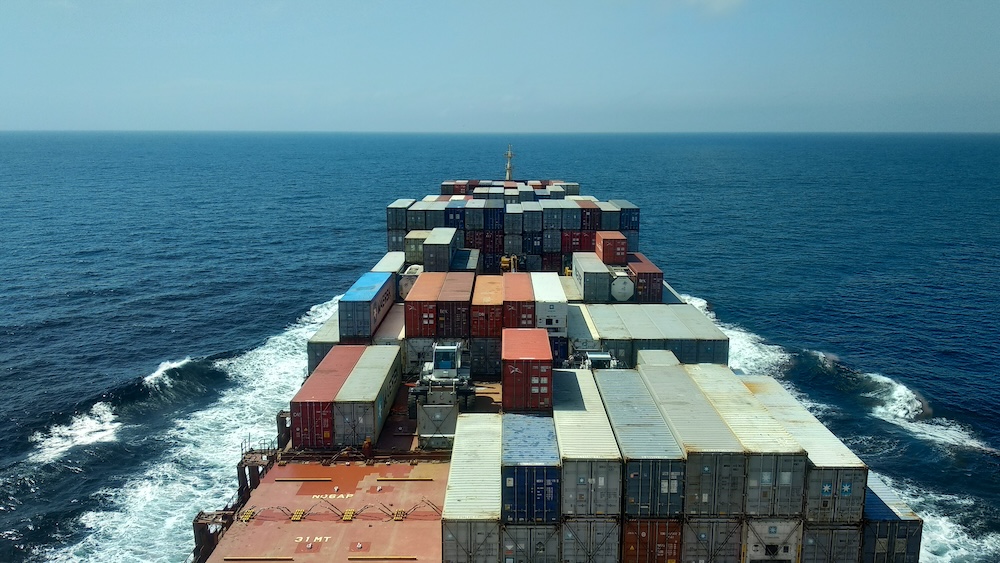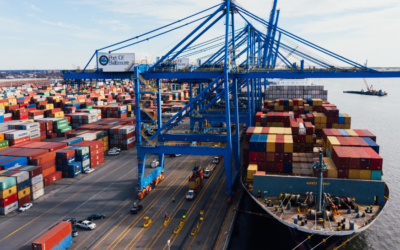The shipping industry has seen its share of upheavals in the last few years, to be sure. From supply-chain distribution and government shutdowns during the pandemic to port congestion and closures, freight forwarders have had to be creative in devising solutions to get their clients’ shipments delivered on time. Global trade is an intricate web with myriad connections, and one issue naturally affects many others. This is true for geopolitical situations, and the Israel/Palestine conflict is no exception. What’s occurring in the Middle East has far-reaching implications, extending to shipping. Here are some of the challenges we’re seeing currently because of the conflict.
Unforeseen Diversions Due to Water Attacks
While much of the Israel/Palestine conflict is occurring on land, given the countries’ proximity to major water trade routes, the issue has expanded to the seas. The Israeli carrier Zim, for instance, has had to divert shipments away from the Suez Canal, which includes travel through Bab el-Mandeb Strait off Yemen, opting instead to circumnavigate the southern tip of Africa. This alternate is 56% longer than the more direct path, leading to delays.
The reason for the change of course is straightforward: three attacks recently occurred on cargo ships with ties to Israel. Zim—and potentially other carriers—are looking to mitigate potential risks to their crews and vessels by changing course.
Disruptions in Global Supply Chains
The Israel/Palestine conflict is expected to lead to ongoing disruptions in the global supply chain, including shipping bottlenecks, changing delivery schedules, and surges in rates. As reported by GoComet, only Ashkelon Port in Israel was closed at the end of October, but Ashdod Port and Haifa Port, also both in Israel, have been experiencing delays.
While not all shipping companies are choosing to travel around the African continent, rather than risk traveling through the Suez Canal, if the conflict continues, they may not have that choice. Previous Israeli conflicts in the 1950s, ‘60s, and ‘70s led to a full closure of the canal.
GoComet does note that Israeli ports see only .4% of global container shipping, so while there are certainly shipping challenges associated with the Israel/Palestine conflict, they may not directly affect other travel routes. However, as previously stated, when one port closes, a ripple effect often follows.
Regardless of the Israel/Palestine Conflict, Trade Continues
As we are all well aware, despite the political environment, trade must continue. However, it proceeds with caution on all fronts. The industry’s largest players, Maersk and MSC among them, continue to use Middle Eastern ports as warranted but are also staying aware of the nuances of the situation. Three of the biggest Israeli trade partners are China, the US, and Germany, all big importers of Israeli goods. And while trade among these countries continues, experts warn that, should the conflict expand beyond its current borders, major thoroughfares may be affected. These include the Suez Canal, of course, but also the Strait of Hormuz, a route commonly used for oil and gas shipping.
This uncertainty in the safety and viability of traditional trade routes has prompted an exploration of alternative shipping methods. The Israel/Palestine conflict could potentially act as a catalyst for a transformation in transportation dynamics, leading to a shift in how goods are transported globally.
Increased Rates Amid Uncertainty
In addition to affecting how products will get to their intended destinations, attorney Alexander Freeman, a partner at Hill Dickinson, warns of other challenges. Trade with a war-torn country can result in a war risk premium, which will be reflected in higher freight rates. Risk in this part of the world isn’t new, but that doesn’t mean that rates won’t reflect a higher level of danger for employees and the shipments they manage.
Since the initial Hamas attack, premiums have skyrocketed 1,000%. Now, shippers can expect to pay insurance that amounts to .15% to .2% the value of the vessel, which is a huge jump from where it was earlier in 2023, at .0125%.
The Imperative of Contingency Planning During Israel/Palestine Conflict
Having a strategic plan for shipping, whether importing or exporting, is always vital, but during uncertain times, it takes an even bigger role. And when those expected options and routes are no longer available, the importance of contingency planning cannot be overstated. Over the past few years, we’ve seen this need more than ever. The pandemic, port closures, the Ukraine conflict, and now the Israel/Palestine conflict all serve as reminders that businesses must have alternative plans for shipping, picking up containers at ports, and navigating legal complexities.
As a business owner, you owe it to yourself to work with a freight forwarder that has adaptability, resilience, and foresight. At Cyclone Shipping, we take proactive measures to mitigate potential risks and ensure you and your customers are taken care of. We live in a world where things can change overnight, and when they does, the supply chain can take a hit. Preparedness is the anchor that prevents businesses from being swept away by the tides of uncertainty. Contact us to learn more about how we can be your shipping partner today and into the future.




